College of Agriculture & Environmental Sciences
Teamwork makes the dream work
Craig Groeneveld and Prof John Dewar from the College of Agriculture and Environmental Sciences are the winners of a 2019 Innovation Award for the First Patent Granted in South Africa: Waste beer recovery at Unisa’s 2020 Research & Innovation Awards. Their research on waste beer recovery aimed to process in a novel way and reuse waste beer recovered from surplus yeast in a way that is not detrimental to quality, flavour or stability, and resulting in water saving.
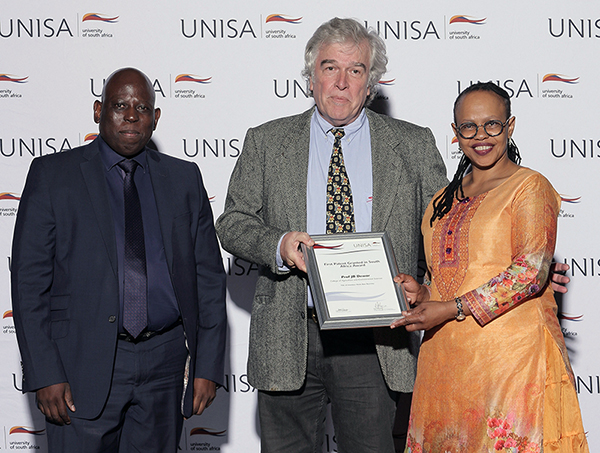
Ayanda Noma (Director: Innovation, Technology Transfer and Commercialisation) and Prof Thenjiwe Meyiwa (Vice-Principal: Research, Postgraduate Studies, Innovation and Commercialisation) congratulate Prof John Dewar (CAES) (centre) on his First Patent Granted in South Africa: Waste beer recovery.
Groeneveld has worked in the brewing industry for 22 years and is experienced with processes that would benefit from optimisation; he also enjoys implementing lateral thinking and innovation in brewing. Talking about Groeneveld’s experience in the brewing industry, Dewar says that Groeneveld has shown himself to be a complete brewer. "It was great seeing him, over time, translate his brewing enthusiasm from being a hard-working junior brewer to becoming a qualified brew master, to then applying his experience in developing multiple brewing patents," he explains. These patents not only contribute to improvements in the brewing industry, they also contribute to the betterment of society in general by saving water and energy.
An industry transformer
Dewar was one of Groeneveld’s lecturers and he noted how he was an excellent microbiology student. After graduating, Groeneveld entered the brewing industry where he started his training by doing everything from carrying 50 kg sacks of barley to cleaning huge fermentation tanks. During this time, Dewar regularly enjoyed sharing remedial beers with him while Groeneveld described his daily working activities.
As brewing is a massively wasteful industry in terms of water and energy, Groeneveld’s patents could transform the industry. The difference is in critical savings and on South African and African brewing, the interaction between industry and the environment, and on real, measurable social responsibility. "I am very pleased that Unisa has recognised Groeneveld’s talents with this well-deserved award, in which I am privileged to share," Dewar explains.
Asked how he feels about the award, Groeneveld says he and his family are very proud that his work has been recognised. He adds that "the granting of the patent proves that the idea is novel. This will also be included in my PhD dissertation. I also feel lucky to have worked with Prof Dewar. Going forward, the work has just begun! We need to commercialise this patent and educate the brewing industry that wasted beer is an exponential waste of water that could have been used elsewhere. I’m enthusiastic and energised that, if correctly promoted, this patent will be of interest to all multinational brewing companies," Groeneveld elaborates.
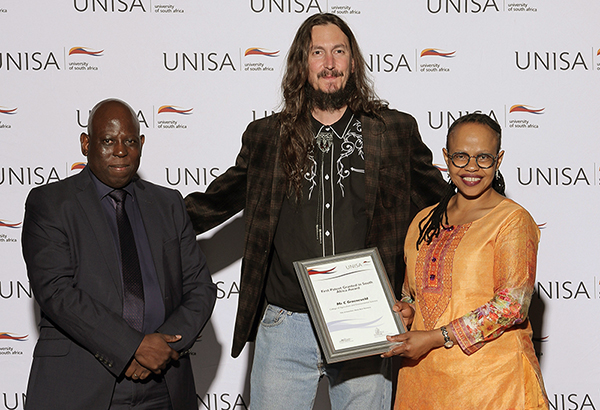
Ayanda Noma (Director: Innovation, Technology Transfer and Commercialisation) and Prof Thenjiwe Meyiwa (Vice-Principal: Research, Postgraduate Studies, Innovation,and Commercialisation) congratulate Craig Groeneveld (CAES PhD student) (centre) on his First Patent Granted in South Africa: Waste beer recovery.
Novel use of light energy
This is Groeneveld’s third patent using Ultraviolet C (UVC) light, a subtype of ultraviolet light, in brewing. He argues that the energy costs are far lower than the use of heat to sterilise a product. In countries where energy generation or supply is interrupted, light energy is far more cost effective than heat. Detailing the research objective further, Dewar explains that he believes that microbiology is a social science and so his research objective as a supervisor has been to train postgraduate researchers in the molecular biology of medically important pathogens, their diagnosis and traditional methods of treatment, as well as brewing.
Dewar initially trained as a microbiologist and a chemist and then focused on molecular biology, specifically looking at vaccine development and the causal link between virus infection and cancer. He then focused on virology and was privileged to be the acting Director of a Medical Research Council of South Africa (MRC) research unit involved in rotavirus research and the testing of a rotavirus vaccine.
He has since expanded his research interests from characterising rotavirus strains to include water quality analysis involving waterborne pathogens and chemical pollutants, medical bioinformatics, development of virus diagnostics, analysis of medically active plant compounds and brewing, where he explains he was fortunate to supervise Groeneveld’s PhD.
Groeneveld’s research highlights and achievements include:
- Patent on a method of beer making that excludes thermal energy for pasteurisation.
- Patent on a method of adding liquid adjunct and sterilising with UVC light rather than heat.
- Patent on beer making using recovered beer from surplus yeast.
Dewar, on the other hand, lists his achievements as follows:
- Contributing to a rotavirus vaccine that was commercially introduced in South Africa in 2009.
- Successfully applying for research grants from the MRC, the Poliomyelitis Research Foundation (PRF), the Norwegian Programme for Development, Research, and Education (NUFU) and the World Health Organisation (WHO).
- Enjoying the publications and graduation ceremonies with his postgraduate students.
Groeneveld and Dewar prove true the saying that alone we can do so little, together we can do so much. Their teamwork in their research strives to improve and create a better world.
* By Tshimangadzo Mphaphuli, Senior Journalist, Department of Institutional Advancement
Publish date: 2020-04-25 00:00:00.0


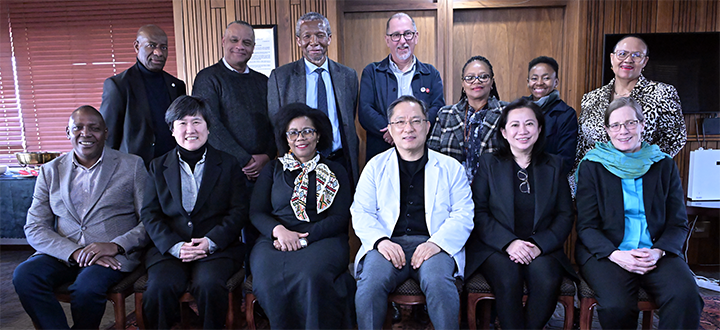 Unisa wins bid to host IAMS General Assembly
Unisa wins bid to host IAMS General Assembly
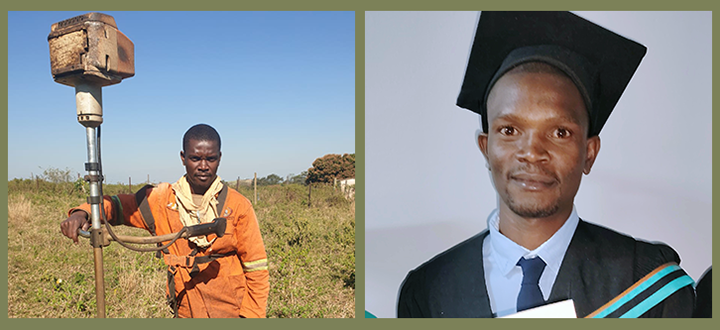 Cutting grass by day, pursuing Unisa studies by night
Cutting grass by day, pursuing Unisa studies by night
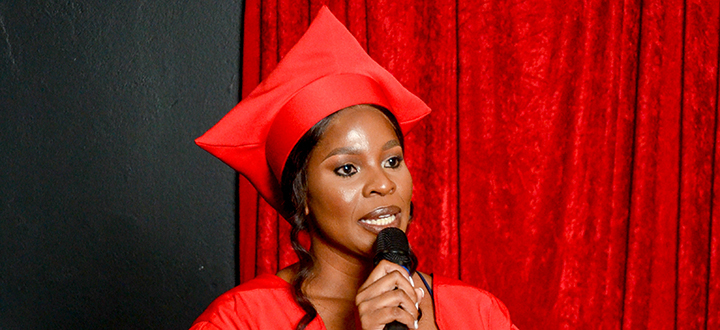 Unisan’s research set to improve accident records management through AI
Unisan’s research set to improve accident records management through AI
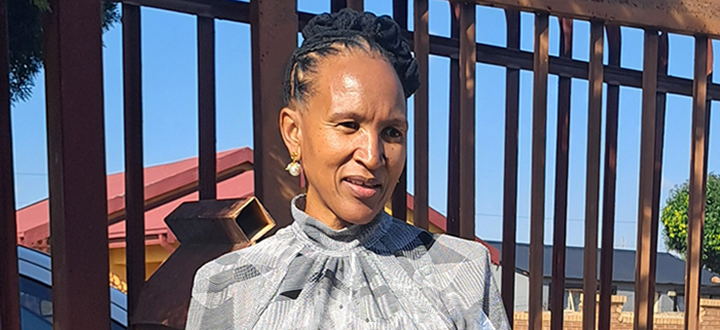 Koma e wetse: When tradition meets the harsh realities of modern livelihoods
Koma e wetse: When tradition meets the harsh realities of modern livelihoods
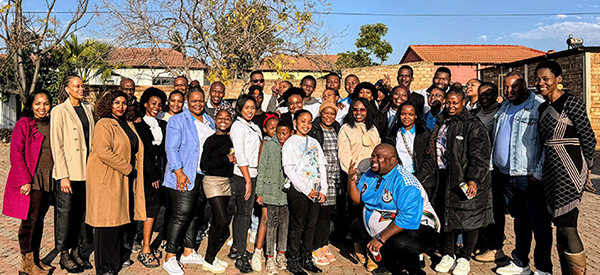 Imbizo inspires youth
Imbizo inspires youth